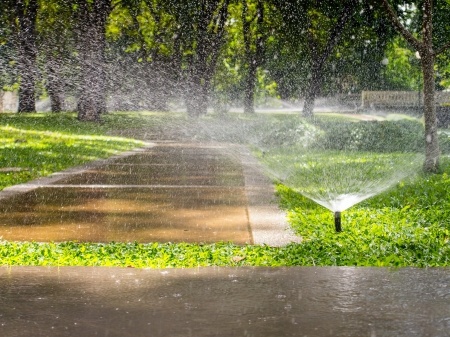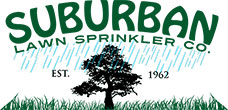
Watering is an integral part of your regular lawn care regimen. Thanks to advances in modern irrigation, keeping lawns well-hydrated is easier than ever. However, there is such a thing as overwatering your lawn, which can have negative effects on your lawn’s health. If you water your lawn regularly and still struggle with brown, unhealthy grasses, it may be because you’re watering too much. This problem is especially common when people neglect to turn off their automatic irrigation systems during periods of heavy rain.
When spring rolls around, it’s important to keep this in mind because you’ll probably be dealing with spring showers on the regular.
So, how can too much water damage your lawn?
Oxygen Displacement
In addition to water, grasses also need oxygen in the soil to grow. When water saturates porous soil, it displaces the oxygen and effectively drowns the root systems of grasses. This results in weak, shallow root systems that are unable to support healthy grass growth.
Disease Susceptibility
Once root systems become suffocated by excessive watering, grasses become increasingly stressed. As a result, they become far more prone to insect damage and disease. Without healthy roots, the grass will struggle to combat disease.
Weed Growth
What makes a weed a weed? They’re extremely adept at growing in adverse conditions. When your grasses struggle to survive, weeds are more likely to thrive. This problem will become more serious if your lawn has been overwatered for multiple seasons.
Reduced Fertilizer Effectiveness
In order for fertilizer to work properly, it needs to be absorbed through the roots of your grass. Overwatering can wash fertilizer away before it gets absorbed, thereby nullifying its effects.
It’s always important to water deeply and infrequently to give your grass the best chance at survival. At Suburban Lawn Sprinkler, we’ve been keeping lawns healthy and hydrated for over 50 years. Give us a call today to learn more about how a modern, efficient irrigation system can help maintain the health of your lawn.









